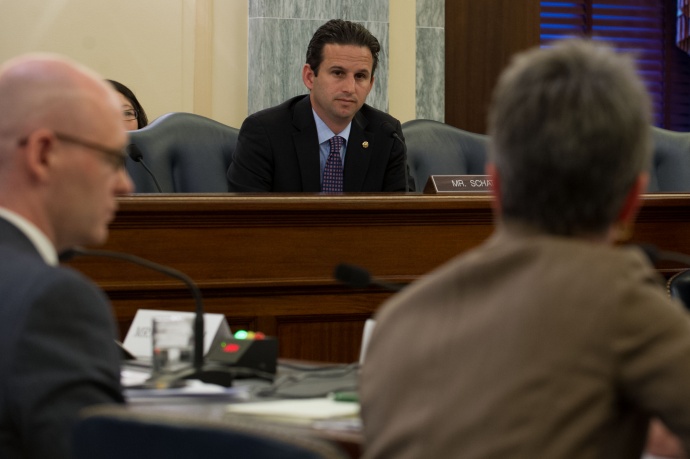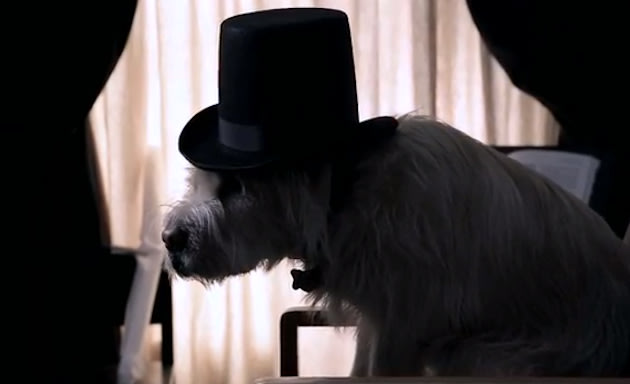PHITSANULOK, Thailand ? The sweltering sun burned directly overhead as U.S. Army Pacific Command Sgt. Maj. Frank Leota pointed to the thicket of trees and vines behind him during one of the last days of this month?s Cobra Gold exercise.
?Look at the backyard we?re in. It?s all jungle,? Leota told about 20 sweat-drenched soldiers who?d just completed an exercise that involved creeping and crawling through the thick terrain. ?The Pacific. It?s all jungle.?
Leota was drawing the distinction between the kind of war U.S. troops have been fighting for a decade ? mostly in urban and semi-desert terrain ? and how vastly different war would be fought in the jungle.
?These field crafts, you have to master them,? said the 33-year Army veteran.
Training U.S. soldiers and Marines in the Thai jungle has long been a staple activity of the venerable Cobra Gold exercise, held for the 32nd time. But its focus on Asia has never been timelier.
For more than a year the Pentagon has been talking up its pivot to the Pacific, away from Afghanistan as the war ends and away from Europe as assets are shifted east. And while conflicts in the Pacific have in the past been dominated by naval engagements, virtually any land battle below the Tropic of Cancer would be waged in jungle.
Four nations that fully participate in Cobra Gold ? Thailand, Singapore, Indonesia and Malaysia ? are within that area. The other three fully participating countries, the U.S., Japan, and South Korea, are a major Pacific alliance.
Other Asian nations were invited to observe. For the first time, Myanmar ? also known as Burma and for many years an international pariah because of its oppressive ruling junta ? sent two officers to observe a staff planning exercise and visit a school being built by troops as part of the humanitarian segment of Cobra Gold.
U.S. Embassy spokeswoman Kristin Kneedler told Voice of America that Myanmar?s attendance was part of ?whole government approach? of reform in the country. She said that included ?engaging the Burmese military as an important stakeholder in and a potential contributor to the reform processes.?
Among the many U.S. troops participating were dozens of soldiers from Company B, 2nd Battalion, 9th Infantry Regiment, 1st Armored Brigade Combat Team, 2nd Infantry Division, based in South Korea.
With deployment experience over the past decade, the soldiers were teamed up with their Thai counterparts to share knowledge and techniques, sometimes one-on-one.
?Based on our experiences in Iraq and Afghanistan, we?re extremely proficient at urban operations, and we?ve done a significant amount of training on short-range marksmanship,? said Lt. Col. Shawn Creamer, battalion commander. ?That?s where ? old guys like me, we used to call it reflexive fire ? you?re basically standing there, a target pops up, and it?s almost instinctive shooting. Muscle memory. That?s the training we?re providing to the Royal Thai Army soldiers of 5th Battalion.?
Creamer?s soldiers, on the other hand, received training in jungle patrol and survival.
?I ate a live scorpion,? Sgt. Brent Smith said matter-of-factly. ?I just took a bite off it. It?s a survival technique. It can be cooked or eaten raw. It?s kind of chewy, weird. The shell is hard and crunchy but the inside is kind of like mush. We just passed it around and took a bite of it.?
They also ate a variety of beetles, grub worms and native plants.
Anything tasty? ?Not really,? Smith said.
Thai Sgt. Thiti Noikoon said through an interpreter that he could easily survive for 12 days in the jungle carrying only uncooked sticky rice for food.
Second Lt. Robert Greeson was impressed by the self-sufficiency of Thai soldiers.
?Surviving off the land is like a way of life,? he said. ?Literally, every day they go out to the pond with nets and catch their lunch. The base is like its own farm. It?s self-sustaining. They have plants, livestock, grow rice. And they all know how to forage in the jungle.
?I don?t think I could survive a month [in the jungle]. But I mean, I know more now than I did before I got here, that?s for sure.?
The Thais also taught the U.S. soldiers how to remove the fangs of constricting snakes from their bodies if bitten.
?A constrictor is designed with a mouthful of teeth to grab, grip and hold, so that way he can wrap around and squeeze his prey until it suffocates,? said Sgt. Robert Juarez. ?The venomous snakes do a quick bite and wait for the venom to take effect.? The fangs are curved like a fishhook, so there?s an art to removing them without tearing away a hunk of flesh.
Many of the soldiers held out an arm as a Thai soldier unleashed an agitated constrictor on them.
?That?s the snake bite right there,? said Pvt. Colby Rau after rolling up the sleeve on his forearm, revealing four puncture wounds from a few days earlier.
?I kind of wondered how it would feel,? he said. ?If I?m walking through the jungle, I?m prepared for it now. If I see that snake, hey, at least it won?t make me freak out,? adding that ?it wasn?t as bad as I thought it would be.?
The soldiers also shared in a Thai ritual of drinking blood from the beheaded body of a cobra. The custom also included a ?cobra cocktail? of blood and rum.
?They said that cobra blood was a Thai tradition that would give you strength and manliness,? Rau said.
Asked if he felt the cobra drink delivered as advertised, Juarez smiled and said, ?I felt empowered by the people around me. The Thais were very supportive of it and very motivated by us doing it, so that?s what was empowering.?
A few days later the soldiers were paired with Thais for a lesson in creeping silently through the jungle. Thai soldiers travel light, carrying far less equipment than their American counterparts.
?You have to learn to live in this,? Leota told the gathered group of soldiers. ?One thing you?ll learn is that you cannot fight the jungle and fight the enemy at the same time. You?re going to lose. So you have to learn how to survive in this environment in order to fight in it.?
Leota said that after joining the Army in 1980, he spent his formative years in Panama where there was in jungle so dense ?you?d move for three hours and only move a half-mile.
?I was fortunate,? he said. ?I had squad leaders and platoon sergeants who were Vietnam vets, who knew how to survive in the jungle.?
He said it was obvious that soldiers are no longer outfitted appropriately for a jungle setting. ?What you see over there is right,? he said, pointing to several Thai soldiers who carried virtually nothing but two canteens, a small pouch, a rope and a weapon.
He said the U.S. Army had recently learned some hard lessons at an exercise in Singapore, in which ?we didn?t move 700 meters and we had 11 heat casualties.?
Operations Sgt. Maj. William Linares admonished the same group of soldiers to begin preparing for an unknown future.
?Before 9/11, how many of us thought we?d be in Iraq or Afghanistan? I didn?t. I knew there were things going on over there, but I didn?t think about it. And did any of you think you were going to be there that long??
Who?s to say that they might not be deployed to a Southeast Asian jungle? he asked.
Leota recalled a squad leader from his Panama years ? a Vietnam War vet ? who would sit out in the middle of the jungle and require his soldiers to take turns trying to sneak up behind him without being heard.
?That?s the kind of stuff we learned, and we?re going to get back to that,? he said. ?It?s going to take a couple years. You may not master it, but you can get better at it.
?When the time comes and we?ve got to come out here in somebody?s backyard in a jungle environment, we?ll already have folks with some sort of experience.?
olsonw@pstripes.osd.mil
?
Source: http://www.stripes.com/news/us-troops-testing-jungle-skills-during-cobra-gold-exercise-1.209322
mickelson how to tie a tie sweet potato recipes the sound of music celebration church new york auto show 2012 tulsa





